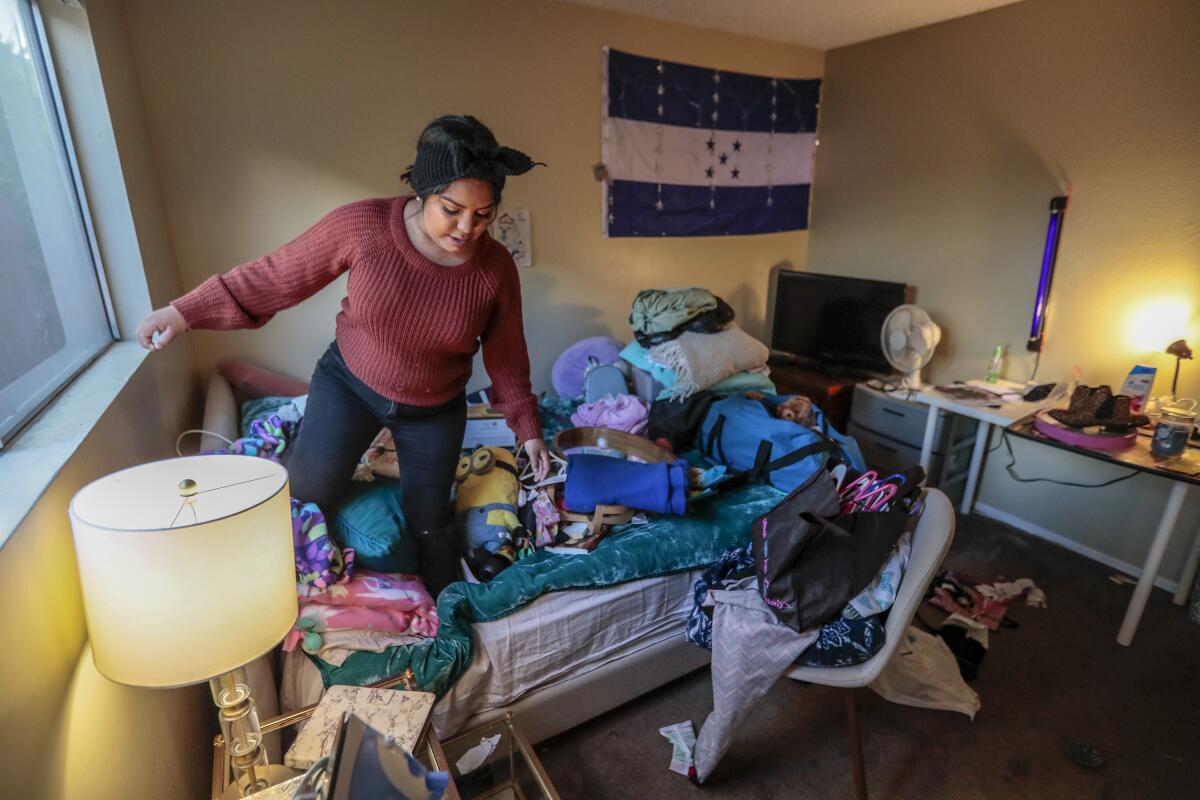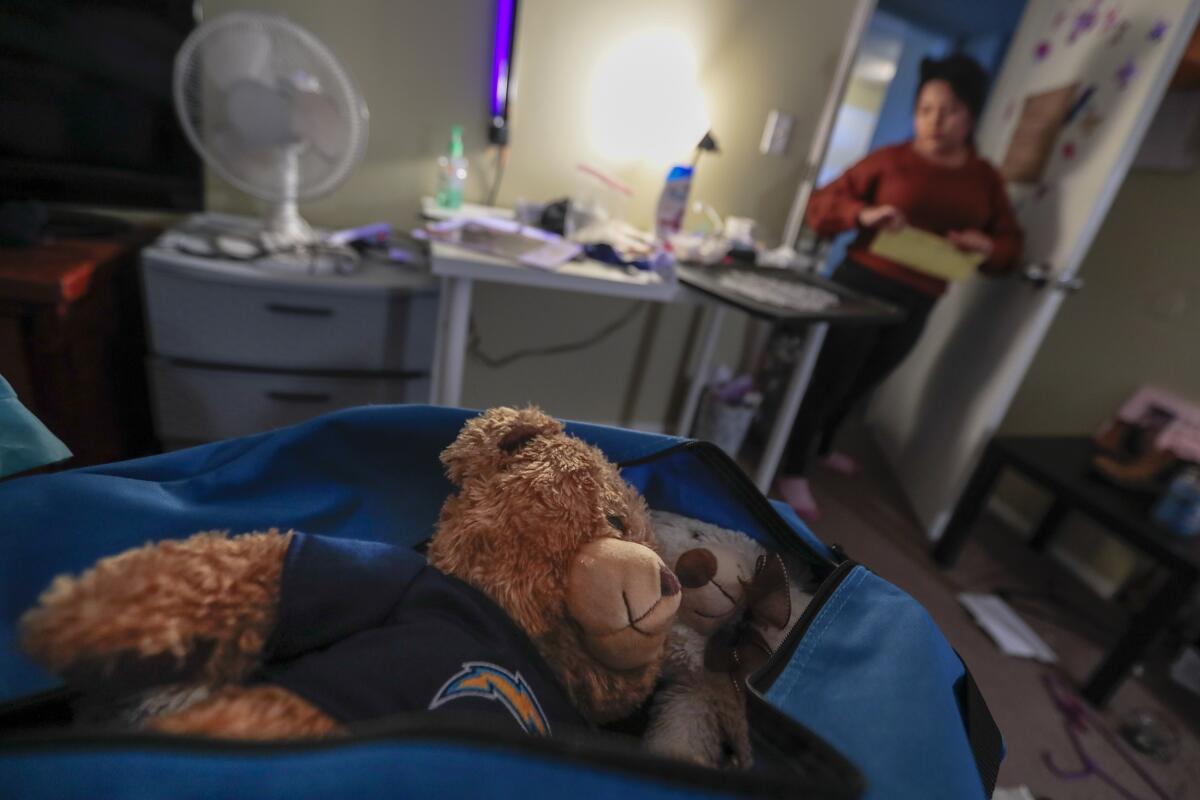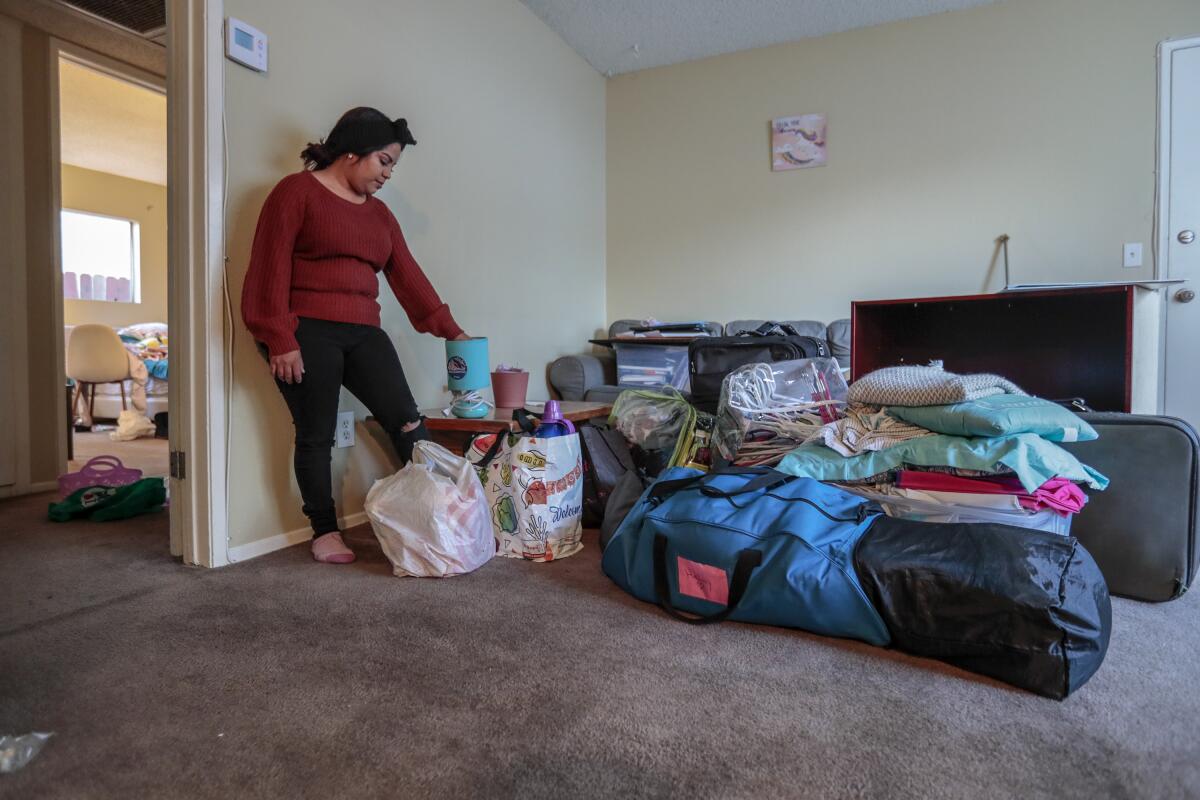Foster youth scramble to find housing after county tells them they must move, citing youths’ ‘best interest’

- Share via
Some 50 current and former foster youths are scrambling to find a new place to live after they were abruptly told this week by Los Angeles County that they could no longer participate in programs offered by a nonprofit organization.
The youths, most of whom are 18 to 21 years old and still in the foster system, have been receiving housing, basic needs and job placement assistance as they transition into adulthood through David & Margaret Youth and Family Services.
Los Angeles County Children and Family Services director Bobby Cagle said in an emailed statement to The Times that “it is in the best interest of youth residing in transitional housing through David & Margaret Youth and Family Services to be placed with a different, locally based service provider.”
The county did not provide additional details about the reasons for its action.
Charles Rich, executive director of David & Margaret, said county officials cited “serious safety concerns” in a phone call with him, but officials did not elaborate.
A review of state licensing records shows that the organization’s license for the transitional housing program remains active and it has not been cited for any serious compliance issues in the last four years.

There have been complaints in recent months about loud music, guests and marijuana use at one building where youth have been housed. There was also a complaint about violence and the threat of violence among residents, and a report of a death in September.
Rich acknowledged drug use and loud music can be an issue with foster youth of this age, and he said one youth in the program committed suicide in September, but that his organization has not been implicated in any wrongdoing.
“As far as I’m aware, there are no incidents that haven’t been resolved when it comes to any licensing concerns,” he said.
Rich said that the county notice came “totally out of left field” and the actions affect about a quarter of the organization’s work.
Children and Family Services officials notified him last week about its concerns with the transitional housing program and sent him a letter Tuesday saying that his organization’s two contracts to provide transitional housing to current and former foster youth were being placed on “termination hold.”
The county could suspend referrals and remove youth currently in the program and terminate the contracts “for convenience or default,” stated the letter, an electronic copy of which was reviewed by The Times. In such an event, no local agency grievance procedures would occur, the letter said.
The youth were notified by the county beginning on Tuesday that they would have to transition to new homes, some of the youth, social workers and Rich said. Those living in La Verne were told they must vacate by Friday. Youth served by the program in other locations will also need to find new housing, but have not been given a firm deadline.
“What are we going to do with the kids? They have jobs, they have school, they have kids,” Rich said.
One social worker put it bluntly: “If they have no families, no friends or ... can’t find placement, they’re probably going to have to go to temporary shelters.”
Youths who were told to move said they were in a panic.

“I started to cry,” said Heidy Lopez-Diaz, 18, who was placed in an apartment in La Verne through David & Margaret in June after moving out of a group home where she had lived for four years.
Lopez-Diaz said it was hard enough to manage to earn a high school diploma and move out of one stable housing arrangement, only to have to move again. But she still considers herself lucky, because her previous group home told her she can come back, at least temporarily due to the emergency nature of her situation.
“I’m still grateful. At least I found a place. I’m still having a roof over my head and I’m going to finish school,” she said.
But after 30 days, it’s not clear where she will go.
Ciel Maya, a transgender 19-year-old living in a different building in La Verne, said that under David & Margaret services she has had to move five times in about a year and the experience has been difficult. (She asked that The Times use her preferred name instead of her current legal name.) But she had finally gained some stability after enrolling in community college and starting an internship with David and Margaret.
“I was scared because it’s, like, I finally got comfortable, I was going to school.... It’s not fair,” she said.
Maya’s county social worker managed to get her an interview at another transitional housing program, she said, and on Thursday she found out she had been accepted.
“Thank God,” Maya said. “Or else I would have been homeless.”
Still, the program is in Bellflower — a good 30 miles from Maya’s current home. The distance means she has to withdraw from her community college classes and wait until next semester to start over somewhere closer to her new home.
Beds for youth like Lopez-Diaz and Maya, called non-minor dependents in the foster care system, are difficult to find. The county has approximately 500 slots in transitional housing programs such as the ones run by David & Margaret, which provide apartments in the community and help young adults go to school and find jobs. Most importantly, they help youth who lack any parental guidance transition to adulthood. But demand is greater than supply — and beds only open up when a young person ages out of foster care or is evicted due to noncompliance.
Other options for housing include foster or group homes, which have limitations. Or youths can move into “supervised independent living placements,” where they are given a stipend to pay for an apartment they rent directly. But many foster youth are not qualified for that level of independence. Otherwise, they may be sent to a handful of shelters specifically for “transition-age youth.”
Beyond these, their only other option is adult shelters, because on paper they are considered adults.
Alex Green-Butler, 20, lives in an apartment in West Covina, where she was placed by David & Margaret. It’s her first time living on her own.
She said the staff and events at David & Margaret made her feel like she had a family and a place she belonged.
“It’s really sad,” she said of the program’s closure. “The holidays are coming up. There’s not a lot of places to go.”
Times staff writer Julia Wick contributed to this story.
More to Read
Sign up for Essential California
The most important California stories and recommendations in your inbox every morning.
You may occasionally receive promotional content from the Los Angeles Times.











